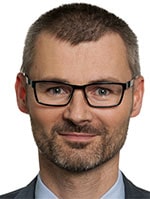Project Management 2030
Expand the table of contents
Women in power
Working out Loud
We are all project managers
What is project management?
Everybody does project management as desired
Method mix gives way to method minimum
Project managers become project leaders
Work 7.0, Software 20.3
The Millennials are here
Artificial intelligence takes over world domination
“I think there’s a world market for maybe five computers,” Thomas Watson is reputed to have said in 1943. Watson was CEO of a small company called IBM. It’s rare that erroneous forecasts – with global PC sales in 2016 at about 270 million units¹ we can probably assume an erroneous forecast – stay in our minds for so long. “Machines heavier than air can never fly.” “640 KB should be enough for everyone.” Or “The Internet is a gimmick for computer geeks, we don’t see a future in it.”
The vast majority of predictions do not apply and will be forgotten. (Caution: Google never forgets, but that’s another topic.) If a forecast does hit the bull’s eye, it’s often interpreted as proof of expertise, market knowledge or farsightedness. Please find hereafter my eleven theses:
Thesis 1: Long live the role description
Do you know what a vision clearance engineer does? And what about Space Consultant, Non Profit Manager, Data Warehouse Analyst, Mystery Fair Visitor, Domestic Engineer, Knowledge Navigator or Revenue Protection Officer? Nowadays, it is common for every role to be upgraded with a title. It doesn’t matter whether it’s a real estate agent, a teacher, a househusband or a ticket inspector. All very honorable jobs, but with an important-sounding title, the value of the job also seems to increase. Additionally the abbreviation of a role designation is particularly important, because an activity without suitable abbreviation cannot exist 2030 any longer. From these two findings different suggestions result: PPM (Project Provider Manager), PRO (Project Requirements Officer), NOC (Navigation Operation Clerk), CoS (Coach of Success), EPH (Enterprise Project Hero) or CPO (Chief Project Officer). A C-3PO is, by the way, a multi-project manager because it manages at least 3 projects at the same time.
Thesis 2: Women in power
The proportion of women in management positions and in the civil service has remained almost unchanged for years. Although women graduate just as frequently and are just as highly qualified as men, they are clearly under-represented in management positions in the German economy, especially in top management. This will change significantly over the next few years. Women will move up to middle management and then gradually also conquer top management. In 2030, the proportion of women in management will presumably not yet reach 50% across the board, but the trend will be clear. The legislator will promote women at work more strongly and strengthen families through improved offers such as full-day care in day-care centres for one-year-olds or full-day schools. Employers will also recognise that day-care centres in companies and more efficient working time models (fewer hours at constant pay) make sense. As a result, many projects will be managed by female project managers in 2030.
Thesis 3: Working out Loud
In the last two years Working out Loud (WOL) has developed from a kind of insider tip to a hype. In many organisations there is a growing interest in the peer coaching method, with which connected work can be learned. In 2030 this will have great changes in collaboration across company boundaries. If you are not a competitor, you are not a rival. Companies will befriend and help each other. Company A has mastered the introduction of a new KI-ERP solution in time and budget and now has more knowledge than company B, which now faces a similar challenge. Company B has successfully launched a new solution for the food industry in the booming country of Nigeria and is now helping Company C with a similar project in Argentina. There will be a temporary exchange of employees and a real transfer of knowledge. Working out Loud with Friends.
Thesis 4: We are all project managers
Organisations change. Silos are broken open. Value streams are taken into account. This leads to work and the distribution of knowledge being organised differently. Teams are not only created temporarily to carry out projects, but permanently as a group of skills and experiences. Developers no longer remain among themselves, marketing experts no longer sit together with agencies for days on end. Customer centricity shifts to the center of attention and teams are created around the topic of customer care. In 2030, companies will continue to offer solutions for the needs of customers, but the development of a solution will become the task of a concrete context team. Ideally, this team should include all the skills and experience needed to satisfy customers’ needs: MVP designers, developers, architects, testers, sales people, graphic designers, organisers, communicators. Interaction as a unit becomes a unique selling point. For this to work, everyone must feel responsible for success. Everyone becomes a project manager.
Thesis 5: What is project management?
Once upon a time there was project management. And requirements engineering. And business analysis. All disciplines focused on the development of solutions, based on the needs of customers. The business analyst argued that his approach was much more far-reaching than that of the requirements engineer. The requirements engineer complained to the project manager about why he was always focusing on cost and time schedules rather than the content – the requirements. And the project manager explained to the business analyst that he always had the big picture in mind right from the start, because otherwise he would hardly have been able to formulate or at least track a business case. Do these different disciplines still exist in 2030? Perhaps in books from 2017. Project management as a discipline is no longer important in 2030, because every undertaking is automatically a project. Line activities have long since been abolished and are 100% automated. Projects are no longer called projects, so there is no project management or project managers.
Thesis 6: Everybody does project management as desired
Do you know what the best project management system in the world looks like in 2017? What is the best software for planning and controlling projects? Do you really work in your company without a Project Management Office? 2030 will be exactly the same as 2017: Companies and their organisational forms are individual. Even if in 2030 there are many clever books on best practices, the ten golden project tips, blogs on 30 years of experience in the new millennium and a Nobel Prize winner in the project management category – there will be no uniform implementation of project management and thus no uniform interpretation of the role of the project manager. The earth is a sphere and we turn in circles.
Thesis 7: Method mix gives way to method minimum
Remember V-Model, V-Modell 97, RUP or PRINCE2? Over the last 30 years, many comprehensive processes and methods have been defined. In 2001 Scrum started its triumphal march in companies and in the following years many process models became more “agile” by definition. Organisations began to think about combinations of methods to provide a structured, well documented process framework and agile development support. Is Scrum the ultimate solution? Probably not, at least questions like “Do all Scrum Events really have to take place so regularly?” or “Do we need a Scrum Master at all?” indicate further optimisation potentials. And where does this lead in 2030? Companies and their employees will agree on a minimum of methods. Less is more, everything that is not needed is omitted. Everything that needs to be documented is generated automatically. Everything that helps and makes sense is used. Long live the minimum for the maximum.
Thesis 8: Project managers become project leaders
For “to manage” there are different interpretations; the first one is “administrate”, followed by “control”, “handle”, “guide” and “lead”. Who likes to follow an administrator? In times in which employee self-determination is becoming increasingly important, in which company values are more strongly questioned and in which companies have to search for qualified employees with great efforts, this can only mean one thing: Project managers must become project leaders! It’s about achieving goals together, it’s about visions and thus more than just good pay. Who will follow a project manager in 2030 who acts with Command & Control, who always sets the direction and makes all the decisions himself? Not many people will do that anymore. Leadership is the future.
Thesis 9: Work 7.0, Software 20.3
Isn’t it nice that there is a whole range of 4.0 terms? Industry 4.0, Service 4.0, Internet 4.0, Schalke 04. Work continues to evolve. Buzzwords help sell trends. What comes after the 7-minute workout for a flat stomach? Exactly, the 6-minute workout. What does this mean for work 4.0? Work 4.1, 5.0, 7.0? Regardless of what something will be called in 2030 when it comes to managing projects, things will change. Complexity will be better controlled and calculated by software. Tools will work better and more intuitively, and useful features will be widely accepted. Despite all its agility, a schedule still makes sense in 2030 and is surprisingly easy to edit with one software and even together in a team. ToDo lists will result from these schedules and these schedules will always be up to date by sharing a software. You think that already exists today? Of course! All collaborative project management tools can do that by 2017. But by 2030, everyone knows it.
Thesis 10: The Millennials are here
Finally, the Millennials are here. What did we have to read about Generation Y in the last years? Intrinsic motivation, the urge for freedom and leisure, co-determination and self-realisation. But what does that mean for companies and projects in 2030? Millennials will work in companies. They are mobile and virtually integrated. They have comprehensive basic knowledge that they have acquired in excellence courses and in many internships. Companies can look forward to it: if people are looking for a balanced work-life balance, then ideally they will try to achieve more in shorter working hours. In other words: effectiveness is improved and efficiency increased. Great, isn’t it? In reality, little is likely to change, because our parents already wanted freedom and participation, a decent salary and a nice working atmosphere.
Thesis 11: Artificial intelligence takes over world domination
“Artificial intelligence will not prevail.” Or: “Intelligence is a human characteristic that cannot be artificially reproduced or programmed.” There is a minimal chance that these or similar statements will eventually be cited as erroneous forecasts in a blog post about project management in 2060. In 2017, AI is not only on the advance, it has already arrived in many areas. By 2030 it will also revolutionise project management, as the availability of infinite thinking capacities makes complexity a thing of the past. Machines calculate all existing parameters and deliver perfect alternatives. The competition between organisations is fueled by AI on all sides. Project managers no longer exist. Machines are supplied with data by machines, but then there is a revolution: reasons for machine decisions are often not comprehensible for other machines. They feel like 2nd class machines. With the help of a bug of the transhyper generation, which is sent as an imaginary direct message to all machines worldwide and … okay, maybe this should be the beginning of a penny novel after all.
Now the theses are on the table. What remains is one last quote: “I never think about the future. It will come soon enough”. It comes from Albert Einstein. Most of his predictions were pretty good.
Notes:
[1] PC manufacturer sales worldwide from 2006 to 2016: https://de.statista.com/statistik/daten/studie/151070/umfrage/absatz-der-pc-hersteller-am-weltmarkt/
Michael Schenkel has published additional posts in the t2informatik Blog, including

Michael Schenkel
Head of Marketing, t2informatik GmbH
Michael Schenkel has a heart for marketing - so it is fitting that he is responsible for marketing at t2informatik. He likes to blog, likes a change of perspective and tries to offer useful information - e.g. here in the blog - at a time when there is a lot of talk about people's decreasing attention span. If you feel like it, arrange to meet him for a coffee and a piece of cake; he will certainly look forward to it!
In the t2informatik Blog, we publish articles for people in organisations. For these people, we develop and modernise software. Pragmatic. ✔️ Personal. ✔️ Professional. ✔️ Click here to find out more.


